LATEST NEWS


(This post first appeared February 20 on Truthout and is republished with permission.)
Republicans were quick to criticize President Obama last week after he proposed raising the federal minimum wage from $7.25 to $9 during his State of the Union address, but now a poll shows that a majority of voters agree with the president that the current minimum wage is not a living wage and a hike is in order.
A Rasmussen Reports national survey released on Tuesday found that only 15 percent of voters believe the current minimum wage provides workers with enough money to live on, while 72 percent said $7.25 an hour is not a living wage.
Voters remain more closely divided on actually raising the minimum wage, with 54 percent in favor of the raising the minimum wage to $9 an hour and 36 percent opposed to the proposal.
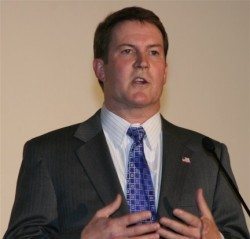
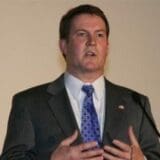
Yesterday we published Part One of a conversation with mayoral hopeful Kevin James, continuing our interviews with Los Angeles’ front-running candidates. James is an entertainment lawyer and talk-show host, who has previously served as a U.S. prosecutor and AIDS Project Los Angeles co-chairman. (The series’ interviews, which have been edited for clarity, include Eric Garcetti, Parts One and Two, and Wendy Greuel, Parts One and Two.)
Frying Pan News: Your campaign’s main selling point is that you are not a City Hall insider, that you have no institutional connection to the city’s budget problems. Other than this, why should Angelenos vote for you?
Kevin James: Neighborhoods across our city believe that this City Council has shut them out, that they don’t have a voice.
» Read more about: Kevin James: Restore City Services and Voter Involvement »
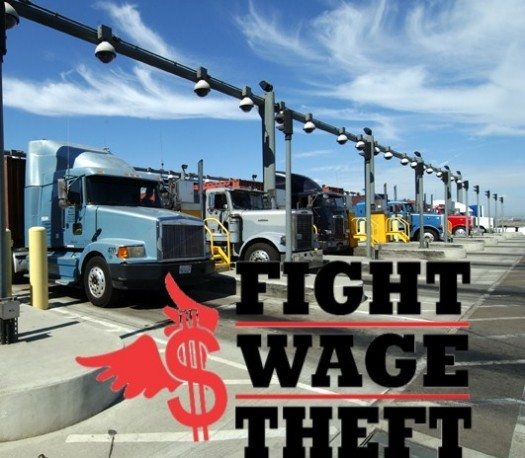
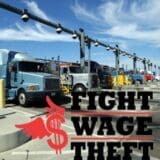
It’s almost payday. Imagine if you went to cash your paycheck only to find that your employer had instead billed you for the opportunity to work for them.
For drivers at Seacon Logix, paying to work was only the beginning of the abuses they faced from their employer, a midsized port trucking company based in Carson.
A group of nine Seacon Logix drivers has persisted for almost two years in seeking to reclaim their wages even as the company has reached a new low in an already notoriously low-road industry.
Seacon Logix didn’t just evade the law by claiming that its employees were “independent contractors,” allowing it to avoid basic responsibilities, like payroll, income taxes and workers compensation insurance.
It didn’t just pass on its operating costs to drivers and force them to pay for vehicle leases, registration and insurance payments by illegally deducting them straight out of drivers’
» Read more about: How Low Can a Port Trucking Company Go? »
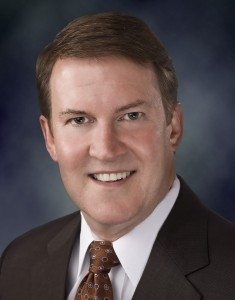
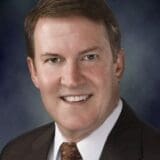
We continue our series of interviews with Los Angeles’ front-running mayoral candidates, with the first part of a talk with Kevin James, an entertainment lawyer and talk-show host, who has previously served as a U.S. prosecutor and AIDS Project Los Angeles co-chairman. (The interviews, which have been edited for clarity, include Eric Garcetti, Parts One and Two, and Wendy Greuel, Parts One and Two.)
Frying Pan News: What do you believe is the role of government in addressing the inequities of the free market system?
Kevin James: A mayor should not shy away from addressing inequality. I was [a] chairman for many years of AIDS Project Los Angeles and part of the work we did was to provide a better life for people who were struggling in theirs —
» Read more about: Kevin James on Bringing Businesses Back to Los Angeles »
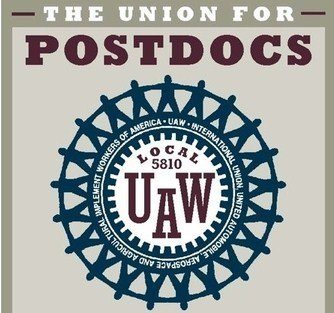
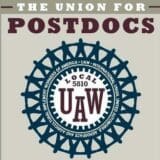
For the thousands of international students and researchers who come to U.S. universities each year, the academy is seen as a beacon of opportunity, where the people who work the hardest and [have] the best ideas rise to the top.
[To] a union representing more than 6,000 postdoctoral scholars (also known as “postdocs”) at the University of California, this promise means something – the majority of our members are immigrants working in the U.S. on guest worker visas, and they are here because they have worked for years to reach the forefront of biology, physics, engineering and other fields. They have already earned PhDs, and come to UC to perform cutting-edge research – think breakthrough cancer therapies, new models for the origin of the universe, stem cell research and more.
Imagine their surprise when after arriving at UC, they are told that although the contract the union negotiated states that health care coverage is available to all postdocs,
» Read more about: University Postdocs Demand Health Care Rights »


In English, “sequestration” sounds like obscure policy wonk jargon. In Spanish, it has a very simple meaning: “kidnapping.”
The kidnapping of our economy is exactly what’s in store for later this week, unless a last minute deal derails plans to cut $85 billion from the federal budget. Corporate backed politicians like Sen. Tom Coburn (R-OK) claim that the cuts target “an excessive, bloated, big federal government that’s highly inefficient and highly ineffective.” But the truth is that the cuts will slice deep into our most important safety net programs.
What will sequestration mean for our families? According to a simple summary from the non-partisan United Way the effects in Californian’s health and education include the following:


(Editor’s Note: Today we continue our series of posts from invited writers who offer thoughts on what the coming four years hold for Los Angeles and its next mayor. These opinions do not reflect the views of Frying Pan News or the Los Angeles Alliance for a New Economy.)
The next mayor of Los Angeles will have significant environmental matters before them. Let’s take two — water and power.
On energy, the Los Angeles Department of Water and Power is obligated by California law to deliver one third of the city’s electricity with renewable power by the year 2020. The state also mandates that L.A. curtail using sea water to cool its coastal power plants by 2029. State law also sets deadlines for L.A. to get off of coal. And the state also demands that L.A. reduce its energy use by at least 10 percent via new energy efficiency and conservation measures by 2020.
» Read more about: Our Next Mayor Must Grapple with Water and Power »


Source: LearnStuff. Republished with permission.


Tenants Together has launched “It’s Your Money,” a new campaign to stop security deposit theft by California landlords. The campaign website, www.YourDeposit.org, features know-your-rights information for tenants, tips on how to protect deposits, tenant stories and policy recommendations. The site allows tenants to share their security deposit horror stories.
Security deposit theft is one of the most common grievances among California’s 15 million renters. In a recent survey, over 60 percent of Tenants Together members reported improper withholding of deposit money. This is an astonishing figure, but not one that surprises anyone working with California tenants.
“Millions of dollars are being stolen from tenants every year,” commented Dean Preston, Executive Director of Tenants Together, California’s statewide organization for renters’ rights. “It’s gotten so bad that tenants paying their security deposits don’t ever expect to see that money again. Something has got to change.”
Unlike in many other states,
» Read more about: Protecting Renters From Security Deposit Theft »
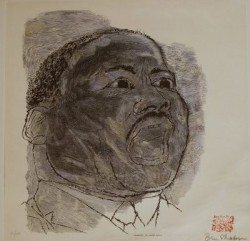
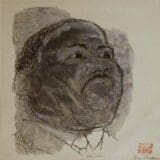
As we settle further into Black History Month, it’s the perfect time to reflect on Martin Luther King Jr. and his often under-acknowledged passion for economic justice. King stands as a pillar of civil rights leadership and the movement for equal rights. His legacy is special to the black community, and as a symbol, he has become an extraordinary role model to all people. However, to see King’s legacy only through this lens would miss much of his work. King was also a union ally and champion of economic justice.
King understood clearly that the battle for racial equality would be empty without a parallel fight for economic equality. “[What] will [the Negro] gain by being permitted to move an integrated neighborhood if he cannot afford to do so because he is unemployed or has a low-paying job with no future?”[i] Having equal rights without the means to exercise those rights becomes an empty promise,


In his State of the Union Address this month, President Obama called for a much-needed increase to the federal minimum wage. Almost four million American workers are paid at or below the minimum wage of $7.25 an hour for their work, adding up to about $14,500 per year, per person for a full-time, 40 hour per week job. This doesn’t come close to covering the cost of living for a single person, let alone a family.
In the food retail sector, unfortunately, raising the minimum wage might not make much of a difference to those employees that are most vulnerable. Grocery stores and other food retail outlets are already avoiding minimum wage and benefit requirements for many workers by keeping them in part-time jobs. Realistically, if a worker can’t get scheduled for 40 hours per week of work, then minimum wage requirements cease to be effective in ensuring an annual income floor.


Today we continue our series of interviews with Los Angeles’ front-running mayoral candidates, with the second part of a talk with City Controller Wendy Greuel. (Next week: Kevin James. See also, Part One of the Wendy Greuel interview, as well as Parts One and Two of our Eric Garcetti interview.)
Frying Pan News: Corporate lobbyists spent more than $30 million last year to influence decisions at City Hall – far more than unions or any other group. Do you think that big business has too much power over local government?
Wendy Greuel: Thirty million dollars is a lot of money. I will, as mayor – as I do as controller and as I did as councilmember — ensure that there is a transparent process and that no one has more access than another to the kinds of decisions that are made in the city.
» Read more about: Wendy Greuel on Lobbyists, Developers and Big Box Stores »


The Los Angeles County Metropolitan Transportation Authority (aka L.A. Metro) needed new, clean buses. If L.A. Metro had simply followed current buying protocol, its single focus would have been on finding a company to deliver the lowest-cost buses. In all likelihood, this would have resulted in jobs going overseas (but for some final assembly jobs on U.S. soil).
Instead, in January, L.A. Metro awarded a $305-million contract for 550 clean-fuel buses to New Flyer Industries, a Canadian company with dedicated manufacturing plants in the U.S. The bus order means that the company will expand its factory operations in St. Cloud, Minn., add a third shift, hire 150 women and men from the local community and create another 50 jobs in Los Angeles. L.A. Metro took a longer-term view of how “big-ticket” transportation purchases — most of them supported by federal funds — can stimulate high-quality jobs and manufacturing in the United States.
» Read more about: L.A. Metro Bus Contract Creates Jobs, Lifts Economy »


I was born in 1946, just when the boomer wave began. Bill Clinton was born that year, too. So was George W. Bush, as was Laura Bush. And Ken Starr (remember him?) And then, the next year, Hillary Rodham was born. And soon Newt Gingrich (known as “Newty” as a boy). And Cher (Every time I begin feeling old I remind myself she’s not that much younger.)
Why did so many of us begin coming into the world in 1946? Demographers have given this question a great deal of attention.
My father, for example, was in World War II — as were the fathers of many other early boomers. Ed Reich came home from the war, as did they. My mother was waiting for him, as were their mothers.
When it comes down to it, demographics is not all that complicated.
Fast-forward. Most of us early boomers had planned to retire around now.
» Read more about: Immigration Reform Can Help Solve the Retirement Crisis »


Today we continue our series of interviews with Los Angeles’ front-running mayoral candidates, with the first part of a talk with City Controller Wendy Greuel, who has previously served as an L.A. City Councilmember. (Tomorrow: Wendy Greuel interview, Part Two. See interviews with Eric Garcetti, Part One and Part Two.)
Frying Pan News: If your opponents are capable and honorable people, why are you running for mayor – why not just sit back and let one of them take the office?
Wendy Greuel: I have the unique experiences that none of the other candidates have. I’ve worked for Tom Bradley, one of the greatest mayors we’ve had in Los Angeles. On the federal level I worked with Henry Cisneros at the Department of Housing and Urban Development – not only on national homeless programs but [by] being here after the Northridge earthquake.
» Read more about: Wendy Greuel on Apathy, Big Money and Being a Jobs Tsar »


Last week the L.A. Bureau of Sanitation released its initial draft implementation plan for moving to an exclusive franchise for businesses and large apartment buildings in the City of Los Angeles. As you recall, at the November vote, the L.A, City Council asked the Bureau to return in 90 days to provide an update on how to implement an exclusive franchise. The product released today demonstrates that the Bureau has taken to heart the resounding message from L.A. City Council that it wants an environmentally forward-thinking plan that protects workers and communities, in addition to stabilizing chaotic waste rates. Even though I have only had a little bit of time to review it, I am very impressed with the initial draft implementation plan.
The stakes are high as outlined in the report. A little under 70 percent of the waste L.A. sends to landfills comes from businesses and large apartment buildings.
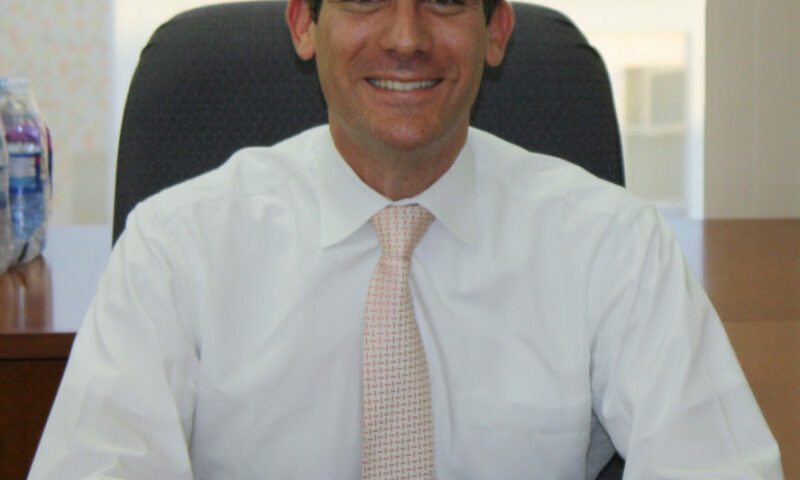

Frying Pan News continues its series of interviews with the leading mayoral candidates, who will face off in the March 5 primary. Part Two of our interview with City Councilmember Eric Garcetti appears today (click here to read Part One), followed Thursday by a conversation with City Controller Wendy Greuel.
Frying Pan News: Many in the business community would prefer the mayor to be a cheerleader for business, but in the last few years we’ve seen what happens when the economy is left to big corporations and financial institutions. How will you balance the interests of the business community and those who are desperately trying to find a path into the middle class?
Eric Garcetti: There’s no question that business is absolutely critical to our economic strength here, and by business it’s not necessarily just the large corporations – we’re talking about the mom and pop store,
» Read more about: Eric Garcetti on Pensions, Privatization and Port Trucking »
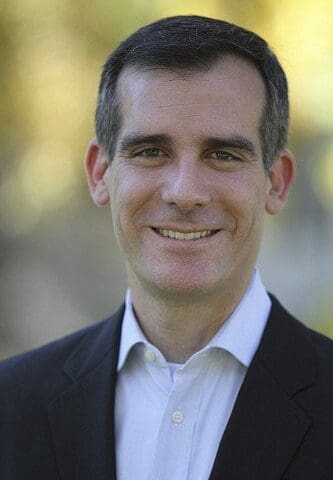

Today Frying Pan News launches a series of interviews with the leading mayoral candidates, who will face off in the March 5 primary. Beginning with City Councilmember Eric Garcetti, we posed questions about what we think are the most pressing issues our next mayor must confront. Part One of our interview with Garcetti appears today; Part Two will run tomorrow, followed by a conversation with City Controller Wendy Greuel.
Frying Pan News: A lot of the mayoral debate so far has focused on challenges with the city budget and whether we should cut benefits for city employees. Can you paint your broad vision of how we bring good jobs, clean air and healthy communities to all of Los Angeles?
Eric Garcetti: Our recovery can’t be just about how we are going to cut more, tax more. My greatest fear is that we will have those who will do well no matter how bad things get – the highly educated,
» Read more about: Eric Garcetti on Walmart, Waste and Living Wage Laws »
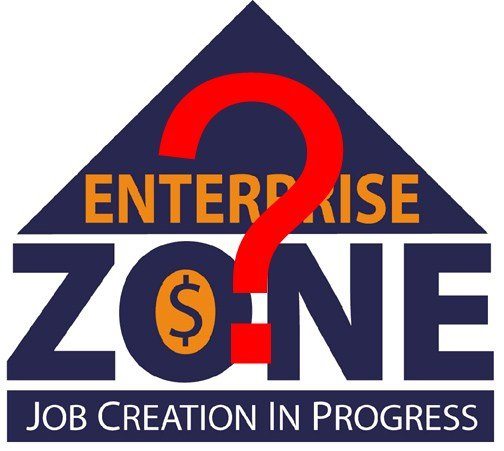

You have to feel a little bad for Texas Gov. Rick Perry. He came all the way to California this week to “poach jobs” and left empty-handed. Maybe Perry hasn’t read the studies that show very few jobs move from California to other states. Or maybe he wasn’t aware that California is on the rebound in a big way, now leading the nation in job creation. At the end of the day, Perry’s trip really was all hat, no cattle.
Over the last week, there’s been a lot of silly media coverage comparing Texas to California. It’s almost like a sports rivalry at this point. Perry says his low-regulation, low-government service, low-wage economic model is the way to go.
As a native Texan, I know better. I still remember going to the beach in Galveston and having to use turpentine to clean my feet before I left because of the oil.
» Read more about: State’s Enterprise Zones Make Rick Perry Look Smart »


The GOP’s inviolate article of faith is that big government is inherently evil. The GOP has been stupendously successful through much of the last century in tagging any Democrat that champions increased regulatory powers, higher taxes on corporations and the rich, greater public spending on health, education and job programs, and bolstering entitlement programs as a reckless, tax-and-spend enemy of private enterprise. Franklin Roosevelt was no exception to the maligning. Often forgotten in the historic lionizing of FDR for standing government on its head to blunt the hard edge of the Great Depression, was that the GOP (with some help from a small but pesky clique of Democratic congressional conservatives, big industrialists and conservative newspaper moguls) fought FDR tooth and nail on every one of his reform proposals from Social Security to tighter industry regulation. Also forgotten, is that FDR had to tweak, compromise and water down his proposals, even the successful ones, to get passage.
» Read more about: Can Obama Do an FDR in His Second Term? »